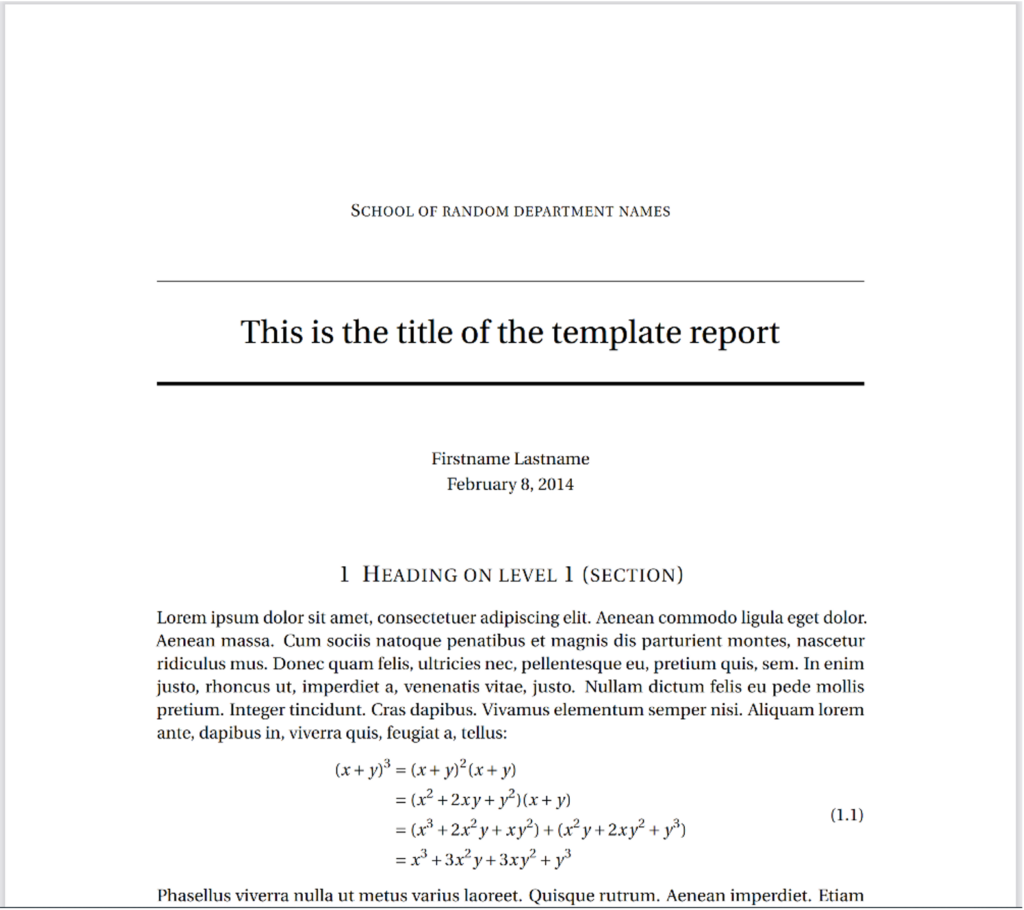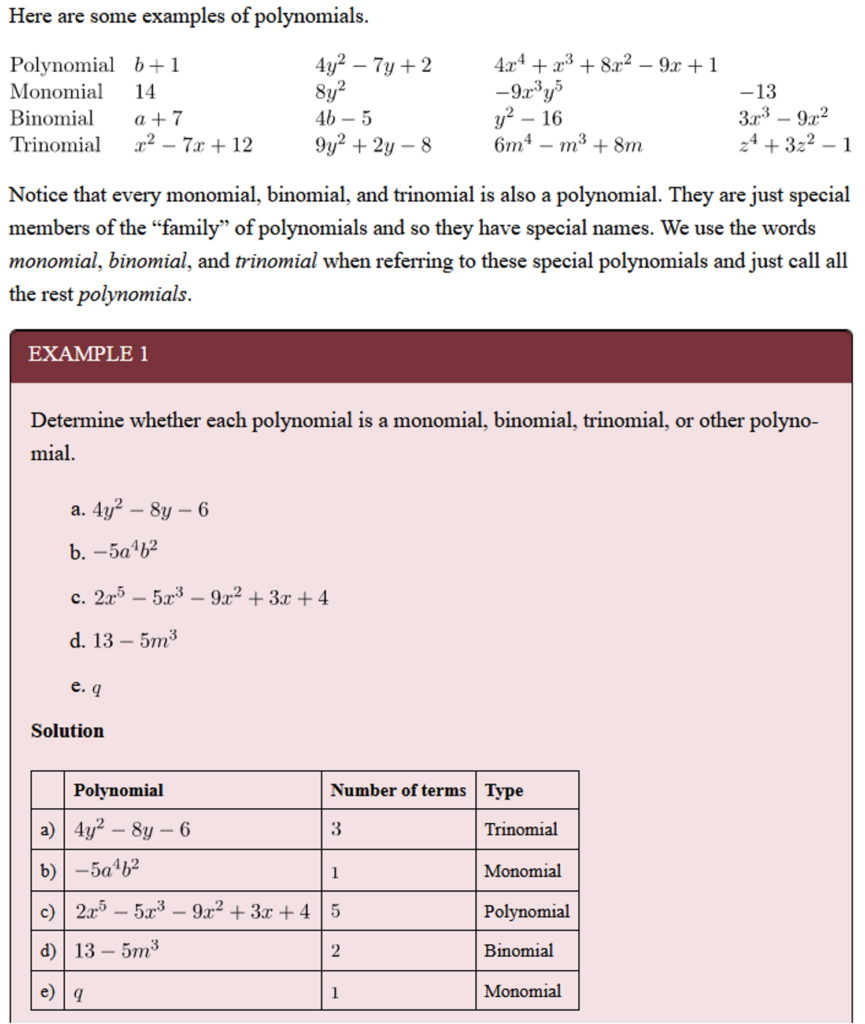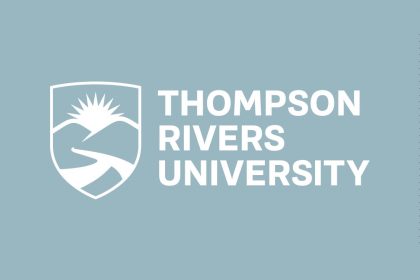Are you an instructor? Do you create educational resources like textbooks or courseware? Do you ever write complex formulas or equations for subjects like math or chemistry?
You may need LaTeX.
Post by Arianna Cheveldave, coordinator, open education, BCcampus
What Is LaTeX?
LaTeX (LAY-tek) is a typesetting system developed by Leslie Lamport and initially released in 1984. In certain environments, you can use LaTeX to create and format entire documents. Here is a page of a document written entirely in LaTeX:

Alternatively, you can use LaTeX within other spaces, like WordPress or Pressbooks, to add some specially formatted expressions to regular text.
For instance, an open algebra textbook will mostly consist of regular text, but it will certainly contain a lot of math, too, which can be formatted very nicely using LaTeX. An algebra textbook could be written entirely in LaTeX, but that would require using a dedicated LaTeX editor tool and a lot more knowledge of LaTeX formatting.
The easiest way to write an open algebra textbook is to use a tool like Pressbooks. In Pressbooks, you could write the paragraphs to explain concepts in regular text, then use LaTeX to write the examples. Here is a screenshot of an open algebra textbook in Pressbooks:

As you can see, LaTeX makes the math stand out from the regular text. In addition, you can use LaTeX to render complex formulas and equations that you cannot create using the special character bank in Pressbooks.
Why Use LaTeX?
LaTeX is most useful for people who write resources for subjects like algebra, calculus, geometry, finance, chemistry, physics, and engineering.
Instead of inserting images of equations that must then be made accessible by providing descriptive text, you can write technical expressions directly into your resource using LaTeX. If you’re writing in the British Columbia/Yukon Open Authoring Platform, your LaTeX will be rendered by MathJax by default.
MathJax is a JavaScript display engine that turns LaTeX markup into high-quality, human-readable, accessible expressions. MathJax allows each reader to customize how expressions appear for them, including format and size. MathJax is also compatible with many screen readers, circumventing the need for descriptive text.
How Do You Learn LaTeX?
BCcampus is working on several support resources that can help you on your journey to learn LaTeX.
A good place to start is the LaTeX Questions Answered section of the BCcampus Pressbooks Guide, which answers such questions as, “How do you write a LaTeX expression in Pressbooks?” and “What kind of symbols can I write using LaTeX?” We continually update this section with questions received from the community, so please feel free to send in your questions to latexsupport@bccampus.ca.
The Math in Pressbooks section of the Pressbooks User Guide explains some of the more technical aspects of writing LaTeX in Pressbooks, including the accessibility features of MathJax and how to adjust your settings.
The LaTeX Support page in the BCcampus Pressbooks Guide links to recordings of the LaTeX Learning Community, which met in the spring of 2021 to discuss LaTeX problems.
You can also reach out to latexsupport@bccampus.ca to ask a question or set up a one-on-one appointment where a member of our team can do a LaTeX demonstration for you or help you solve a particular problem.
